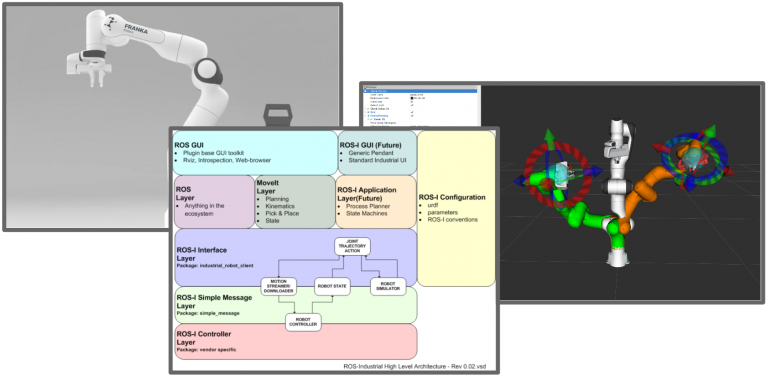This ADT (Aide au Développement Technologique) aims to give a technical support for experimental developpement of all Auctus research activities. These technological developments are essentially software developments in the context of capturing human movement and about real-time control of collaborative robots.
The objectives of the ADT come under development, deployment, documentation and support of a software architecture for experimentation in collaborative robotics allowing the short, medium and long term development of the scientific work of Auctus and facilitating their dissemination.
Developments include:
-
a software component for online estimation of the state of one or more human “subjects” of a collaborative robotics experiment;
-
a visualization tool allowing to replay a certain number of experiments in simulation;
-
an integrating architecture allowing the simple addition of hardware components (sensors, robots, …) and the configuration of an experience by describing the hardware components included, the nature of the processing to be performed and the history files (logs) to constitute.
Up to now, realized works are:
-
help and realization of an experimental setup for the study of the motor variability of a user (MOVER project);
-
help and realization of an experimental setup for the study of efforts during a woodworking task in an industrial context (WOOBOT project);
-
implementation and deployment of a method for using the institute’s integration tools for team codes;
-
development of a solution allowing to simply interface the ROS framework with Unity3D software, with a view to carrying out modular experimentation and easily deployable.
People involved:
- Thibault Lainé
